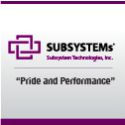
Open source solutions provider Red Hat Inc. announced Oct. 26 that Red Hat Enterprise Linux 7.1 has been awarded the Common Criteria Certification at Evaluation Assurance Level 4+ for an unmodified commercial operating system under the Operating System Protection Profile. This marks the first time an operating system has been Common Criteria-certified with Linux Container Framework Support.
“As the world’s leading enterprise Linux platform, Red Hat Enterprise Linux powers some of the world’s most complex, critical and highly secure systems, from financial markets to military communications networks,” Red Hat Public Sector Vice President and General Manager Paul Smith said. “Not only does the Common Criteria certification demonstrate that Red Hat Enterprise Linux offers industry-leading security features, this achievement also marks our flagship operating system as the first to bring a framework for Linux container technology into the world of more secure, certified computing.”
“The Red Hat Common Criteria Certification provides enterprise-level security validation for large scale IBM Power and Z Systems computing environments leveraging open source solutions,” IBM Open Solutions Vice President Jim Wasko said. “As clients choose open source capabilities to achieve greater flexibility in their cloud environments, they can have confidence in the security offered by Red Hat’s Linux Operating System.”
The Common Criteria is an internationally recognized set of standards used by the federal government and other organizations to assess the security and assurance of technology products. In the Common Criteria scheme, EAL represents the depth and rigor of the evaluation, giving consumers the confidence products specified at a specific level meet the package of security assurance requirements associated with that level.
This certification provides government agencies, financial institutions and customers in other security-sensitive environments the assurance Red Hat Enterprise Linux 7.1 meets clear, specific security standards used by the federal government.
In addition to Linux Container Framework Support, Red Hat Enterprise Linux 7 has also been certified to include functionality for:
- Advanced Management (MLS mode only)
- Labeled Security (MLS mode only)
- Runtime protection against programming errors, encompassing address space layout randomization, stack smashing protector strong and others
- Packet Filter
This combined functionality makes Red Hat Enterprise Linux 7 the most secure platform Red Hat has ever certified via Common Criteria.
Certified configurations from Red Hat Partners include:
- Dell
- Dell PowerEdge R530, R630, R730, R730xd, R920 and R930
- Dell PowerEdge T430 and T630
- Dell PowerEdge M630 and M830
- Dell PowerEdge FC430, FC630 and FC830
- Dell PowerEdge C6320
- Dell PowerEdge Precision R791
- Hewlett Packard Enterprise
- HPE based on x86 64bit Intel Xeon processors:
- HPE ProLiant ML series G7, Gen8, Gen9 product line
- HPE ProLiant DL series G7, Gen8, Gen9 product line
- HPE ProLiant BL series G7, Gen8, Gen9 product line
- HPE ProLiant SL series G7, Gen8, Gen9 product line
- HPE based on AMD64 processors:
- HPE ProLiant ML series G7, Gen8 product line
- HPE ProLiant DL series G7, Gen8 product line
- IBM
- IBM System p based on Power 8 processors providing execution environments with PowerVM:
- Big Endian with PowerVM: Tuleta BE model number – Power 835 model 8286-41A
- Little Endian with Red Hat Virtualization for Power 3.6: Power 835 model 8284-22A
- IBM System z based on z/Architecture processors:
- zEnterprise EC12
- zEnterprise BC12
- zEnterprise 196
- zEnterprise 114
Red Hat Enterprise Linux 7.1 was certified by BSI, Germany’s Federal Office for Information Security. To facilitate this certification, Red Hat worked with atsec information security corporation, a U.S. government and BSI accredited laboratory, which tested and validated the security, performance and reliability of the solution against the Common Criteria Standard for Information Security Evaluation (ISO/IEC 15408) at EAL4+.
Related: CSC PaaS Cloud Offering Receives FedRAMP Certification, Built on Red Hat’s OpenShift


